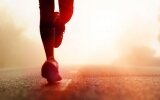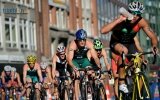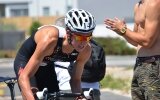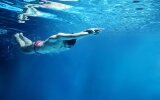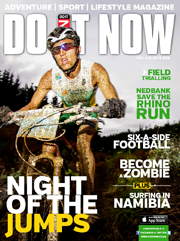- Magazine
- #readityourway
- Weekly Stories
- #shareyourstory
-
Adventure
- Abroad Travelling
- Africa Travelling
- Events
- Expos & Shows
- Festivals
- Fishing
- Free Diving
- Gliding
- Horse Riding
- Inspiring People
- Islands Travelling
- Kite/Windsurfing
- Motorbiking
- Motorised Water Sports
- Mountaineering
- Mountain Biking
- Off-road 4x4
- Off-road Motorbiking
- Paddling
- Performance Driving
- Photography
- Rock Climbing
- Rollerblading
- Sailing
- Scuba Diving
- Skateboarding
- Skydiving
- Snowboarding & Skiing
- Surfing
- Swimming
- Trail Running
- Wakeboarding
- Waveski Surfing
-
Sport
- Adventure Racing
- Fishing
- Free Diving
- Gliding
- Health & Fitness
- Horse Riding
- Inspiring People
- Kite/Windsurfing
- MMA
- Motorbiking
- Mountain Biking
- Multi-sport
- Off-road 4x4
- Off-road Motorbiking
- Paddling
- Performance Driving
- Photography
- Road Cycling
- Road Running
- Rock Climbing
- Rollerblading
- Sailing
- Scuba Diving
- Skateboarding
- Skydiving
- Snowboarding & Skiing
- Surfing
- Swimming
- Rugby
- Trail Running
- Triathlon
- Wakeboarding
- Waveski Surfing
- Lifestyle
- Calendar
A Dream Becomes a Reality
Words: Wian Sullwald ǀ Photos: Manfred Sullwald ǀ Video: International Triathlon Union
Category:
Triathlon
Ever since Wian's first world Triathlon Championships in 2009, he has dreamed of being the best junior triathlete in the world. Four years later, he fulfilled his dream of becoming the 2012 Junior World Triathlon Champion. This achievement was made even more special because he was the first-ever African to claim an ITU World Champion title.
But to get there, it was four years of hard work, dedication, experience, sacrifices, and racing, and he needed to qualify, which he did by winning the Junior African Championships and by being the SA Champion.
DO IT NOW Magazine caught up with Wian to find out what it takes to become the Junior World Triathlon Champion.
Q: What does it take to excel as a triathlete?
Triathlon is a sport that takes a long time for an athlete to race at the top, and getting there is no easy task. To be competitive, you need to gain a lot of racing experience, especially internationally. There are also a lot of small things that can make a big difference to your performance, which you need to learn. You need to find the correct training routine that works for you and will enable you to become a stronger athlete. I still have a way to go to get to where I want to be come 2016, but it's something that I am totally committed to and work on daily.
Q: Who are your sponsorship partners?
Over the past two years, I've been fortunate to be sponsored by a number of fantastic companies, which have all played a role in helping me reach my dreams. Sponsor support was taken up a notch in 2010 when I started racing as part of the BSG Elite Team, sponsored by Business Systems Group (BSG). In the build-up to the Junior World Triathlon Championship, I was also very fortunate to have Triathlon South Africa come on board.
After winning the championship, I signed with a few new sponsors, who are also my current sponsors: Specialized Bicycles, Oakley, PeptoSport, FutureLife, Puma, Huub, Continental Tyres, and the High Performance Centre (HPC). I am also funded by SASCOC, as part of their Opex Programme. Triathlon South Africa had also just announced that their High Performance squad would receive financial support, and I am fortunate enough to be part of this squad.
Q: Tell us about your training leading up to the championship?
My training load and programme varied according to where I was in the build-up and type of track I would be racing on. For example, the course at the World Champs had three steep hills in a 5 km lap, so I focused heavily on hill work in my training schedule. During the week of a race, I followed a specific programme that would get me sharp and ready for the race lying ahead.
The HPC in Pretoria provided me with great training facilities, and I got assistance with my bike set-up, massages, nutrition advice, and sociology. I normally trained for approximately 30 hours a week, with a mixture of recovery sessions, endurance sessions, and key sessions that were very specific. What I especially enjoyed doing was going for a 20 km run early in the morning and witnessing God's great creations, while also releasing how lucky I am to do what I love every day, at a high level.
I had a few good training partners, including Rudolf Naude and Eddie van Heerden, with my main partner being Wikus Weber. In terms of coaching, you get no better than Lindsey Parry and Rocco Meiring, who have pushed me above and beyond what I thought was possible.
Competing was also a major part of my training and preparation for the World Champs, so I took part in a number of events. Some of the bigger ones were the South African Championships - 1st place; the Holten Junior European Cup – 1st place; Vienna Junior European Cup – 2nd place; World Student Games – 9th place; and the Junior African Championship – 1st place.
Q: How did all the training impact on your studies and family life?
I was studying part-time so that I would have more time to spend on training. My family is awesome! They are very supportive and try to get involved as much as they can, which is great!
Q: Did nutrition play an important role in your preparation?
Eating healthy is very important and played a major part in my performance. Although I didn't follow an eating plan when training for the World Champs, I tried to eat as healthily as possible and made sure that I took in enough fuel during training. Now I stick to an eating programme that has been put together by Nicki de Villiers, a dietician at the HPC, and it's working really well for me.
Q: What was the hardest thing you had to overcome to get ready for the big day?
Nothing, I had been waiting a whole year for this race and nothing could stop me or get in my way. I was more than ready too race.
With all the hard work done, I headed to Auckland in New Zealand two weeks prior to the race so that I could fully acclimatise and be as fresh as possible on race day, which consisted of a 750 m swim, 20 km bike, and 5 km run.
Q: What was race day like?
Race day was cold, windy and raining - not ideal conditions to race in. As I waited for the race to start, excitement coursed through my veins. This was the moment of truth, when all my training and preparation would be put to the test. Instead of feeling nervous, I was eager to get the race underway because I knew that I was more than ready to take on the world's best. I felt really confident, thanks to all the help I had received from my excellent coaches and sponsors.
Looking around, I felt incredibly privileged to be standing there amongst the world's best, the likes of Kristian Blummenfelt (Norway), Bob Haller (Luxembourg), Jelle Gens (Belgium), Simon Vian (France), and about 65 other world-class junior triathletes. My biggest threats were Kristian, Bob, Jelle, and Simon, so I knew I had to swim fast, cycle smart, and save enough energy for the run.
As the gun went off for the first leg, a 750 m swim consisting of two laps, more than 70 athletes hit the water. I'm a strong swimmer, which was just as well as there was quite a bit of fighting and pulling on the pontoon, but I managed to make my way to a small group of front swimmers. I really enjoyed the swim and felt totally exhilarated as I left the water in the top ten.
I had a great run to the transition, which enabled me to be the first rider out and on the road. The bike leg was along a well-marked 5 km route in the city of Auckland, which was completely free of traffic. This was followed by four laps on a hilly course. This was an honest cycle course, so the stronger cyclists had the advantage but believe me, you still needed to dig deep into the endurance pool to keep the power going. On the first lap, two of the athletes and I broke away from the group, but we were followed by a number of riders in hot pursuit. It became a game of cat and mouse until they eventually closed the gap. The bad weather only made things worse, but I love racing in the rain so I was in my element and managed to stay on my bike through that very wet and slippery cycle leg. By the end of this leg, I was in the front group. Coming into transition, my legs were feeling pretty good and I was looking forward to making short work of the 5 km running in the third and final leg.
This leg was on a combination of asphalt-paving and brick-paved roads. The course looped through crowds two times and kept me totally pumped for the big finish. I took the lead early in the run and from there I just kept powering away and extended my lead with each step. As I ran, I can remember thinking about all the work that I had done in the year and how many times I had pictured this moment, and now that victory was within my grasp, I was actually struggling to believe that it was really happening. I finished with enough time too celebrate the biggest victory of my life in style.
A big thank you to Triathlon South Africa, Business Systems Group (BSG), High Performance Centre (HPC), Sport and Recreation South Africa, ASG Sport Solutions, PeptoPro, PeptoSport, FutureLife, Bruce Reyneke Cycles, and Continental Tyres for all your support and help in 2012 to fulfill my dream.
Q: What's on your horizon?
I am working towards the Rio 2016 Olympic Games, where I hope to be a serious contender. Leading up to this, I raced internationally in ITU World Cup and World Triathlon Series events, and hope to keep on improving as Rio draws nearer.
My main goal this year is to establish and entrench myself in the ITU elite racing and build up my ITU points, as well as achieve a top-ten finish at the Under 23 Elite World Champs, which is being held in London on
11 September. For 2014, I plan to pick up on the good form that I will hopefully end 2013 off with, and qualify for the Commonwealth Games in Glasgow, Scotland.
Q: Do you have any tips for up-and-coming triathletes?
Always remember that triathlon is a sport that takes you a long time to get to the top - it won't happen overnight. Just keep on working hard toward your goals, and believe in yourself and your coach.
DO IT NOW Magazine wishes Wian all the best with his preparation for the Rio 2016 Olympic Games. SA will be rooting for you!
|
|
|
|
|
|
|
|
|
|

